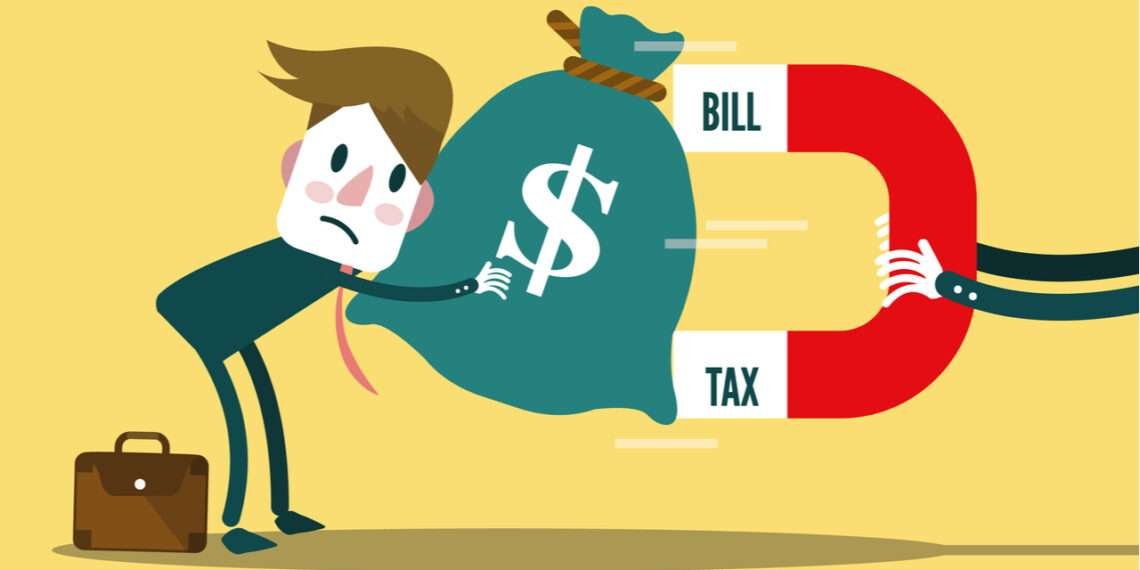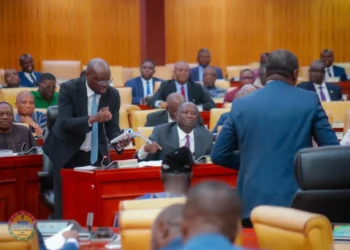Many are the plights and unuttered grievances of people, businesses and corporate entities struggling to rub two pennies together, but who delivers them from Zacchaeus’s steel grips?
The economic storm Ghana is confronted with is far from over, while the over-zealous government advocates insist the country has turned a corner, citizens are in a financial dark alley as bandits threaten to burn holes in their ill-resourced pockets.
As Ghana’s economy continues to face significant challenges, the government recently introduced three new taxes – the Excise duty amendment bill 2022, the Growth and sustainability levy bill, and the income tax amendment bill 2022 – to raise revenue and meet the criteria for a $3 billion IMF programme staff-level agreement.
Since the passage of the Excise Duty and Excise Tax Stamp Bill, 2022, the Income Tax Bill, 2022, and the Growth and Sustainability Levy Bill, 2022, Ghanaian businesses have screamed themselves hoarse, protesting fruitlessly the impact of such impositions on their already crippled businesses.
The Excise duty amendment bill 2022 increases the tax rate on specific goods, such as tobacco, alcoholic beverages, and petroleum products. Similarly, the growth and sustainability levy bill imposes a tax on the supply of goods and services, while the income tax amendment bill 2022 affects individual taxpayers, including business owners.
What this portends is that the new taxes are having a significant impact on both businesses and consumers, as they have led to an increase in the cost of production, higher prices, and an increase in the tax liability of individuals.
Despite the warning given by business associations and experts, government’s justification was that there could be serious challenges with the country, which may send shocks to the economy if the bills are not passed – as if that is not happening already.
Quite like a toxic marriage, the abuse being hurled at businesses by the government in the form of taxes and what some have described as nuisance taxes is the brink of a ‘divorce’ as businesses have once again raised protest against the impact of these taxes.
Recently, the Ghana Hotels Association (GHA) bemoaned the recent hikes in utility tariffs, taxes, and levies, insisting that “they are incredibly crippling the hospitality industry”.
Isaac Nkoom, the immediate past Central Regional Chairman of the GHA, revealed that the property rate regime currently being implemented by the Ghana Revenue Authority has become a “killer to the sector’s rebound.”
“How could a facility that pays a property rate of GH¢700 suddenly rise to GH¢20,000 or from GH¢1,800 to GH¢50,000? We are not against the increase and the collection by GRA, but we are against the astronomical increases killing our businesses. We do not know how they arrived at those sharp increases and, as far as we remain stakeholders, we expected some consultations on operational modalities before implementation.”
Isaac Nkoom

Moreover, Mr Nkoom noted that the challenges has also been exacerbated by 20 multiple and duplicate taxes and levies, which are “suffocating the growth of the sector.”
“These include the NHIL, VAT, GETfund, COVID-19 levy, GTA levy, EPA Levy, FDA levy, MMDAs levy, Fire Service levy, and one percent tourism levy. Others are SSNIT for staff, data protection levy, property rates, suitability report levy, and GHAMRO levy, all of which contribute to the pricing mechanisms.”
Isaac Nkoom
Businesses buckle under pressure of taxes
Following suit, the Food and Beverage Association of Ghana has equally lamented what it described as the “over taxation” of businesses in the country which is not the answer to resuscitating the economy.
It reckoned that governments over the years have tried unsuccessfully to maintain stable macro-economic growth especially growth emanating from the private sector. However, it noted that no government has successfully engineered stable economic growth up to a decade.
FABAG stated that successive governments blame each other for the woes of the country, and Ghana has visited the IMF for the 17th time in its history with each visit prescribing relatively hasher economic conditions with higher taxation for the citizenry.
“Higher taxes is a major killer of businesses. Ghana has tried the option of higher taxes for decades and yet our economy keeps failing, it is time to try the option of tax net expansion, with lower taxes and scrapping unfriendly levies and duties, and business friendly taxes in the 2024 fiscal year.”
FABAG
Truth is that the business sector is currently riddled with too many taxes, levies, duties and indeed an overtaxed economy, which stifles growth, and the government stands to rake in more revenue for development still if taxes are reduced and some cancelled.
As the presentation of the 2024 budget is around the corner, businesses and associations have already started appealing for major tax cuts and the cancellations of some taxes in the 2024 fiscal year. This, they believe, will spur the gains the economy has started making to sustainable levels.
Echoing the sentiments of the Association of Ghana Industries (AGI), government must be deliberate to streamline the current tax regime to empower local businesses, as this will create room for local manufacturers to thrive and ultimately help in the expansion of the economy and sustain the recent economic recovery.
“We are saying that we want the current tax regime to be streamlined in order to give room for private local manufacturers to be able to thrive and relieve them from all the tax burden”.
AGI
Creating a safe haven for businesses and the trading community is crucial, not just for their survival, because it stands to potentially enhance the health of the ailing economy despite the ‘placebo effect’ it’s currently experiencing from the IMF financial injections. True economic turnaround is essentially in growing the indigenous businesses and ensuring a level-playing field for them to operate.
Government must move merely from acting on a fiscal-induced spur and gravitate towards building and sustaining indigenes businesses which are at the heart of its economy.
READ ALSO: Military Condemned For Colluding With ‘Misguided’ Political Apparatchiks





















